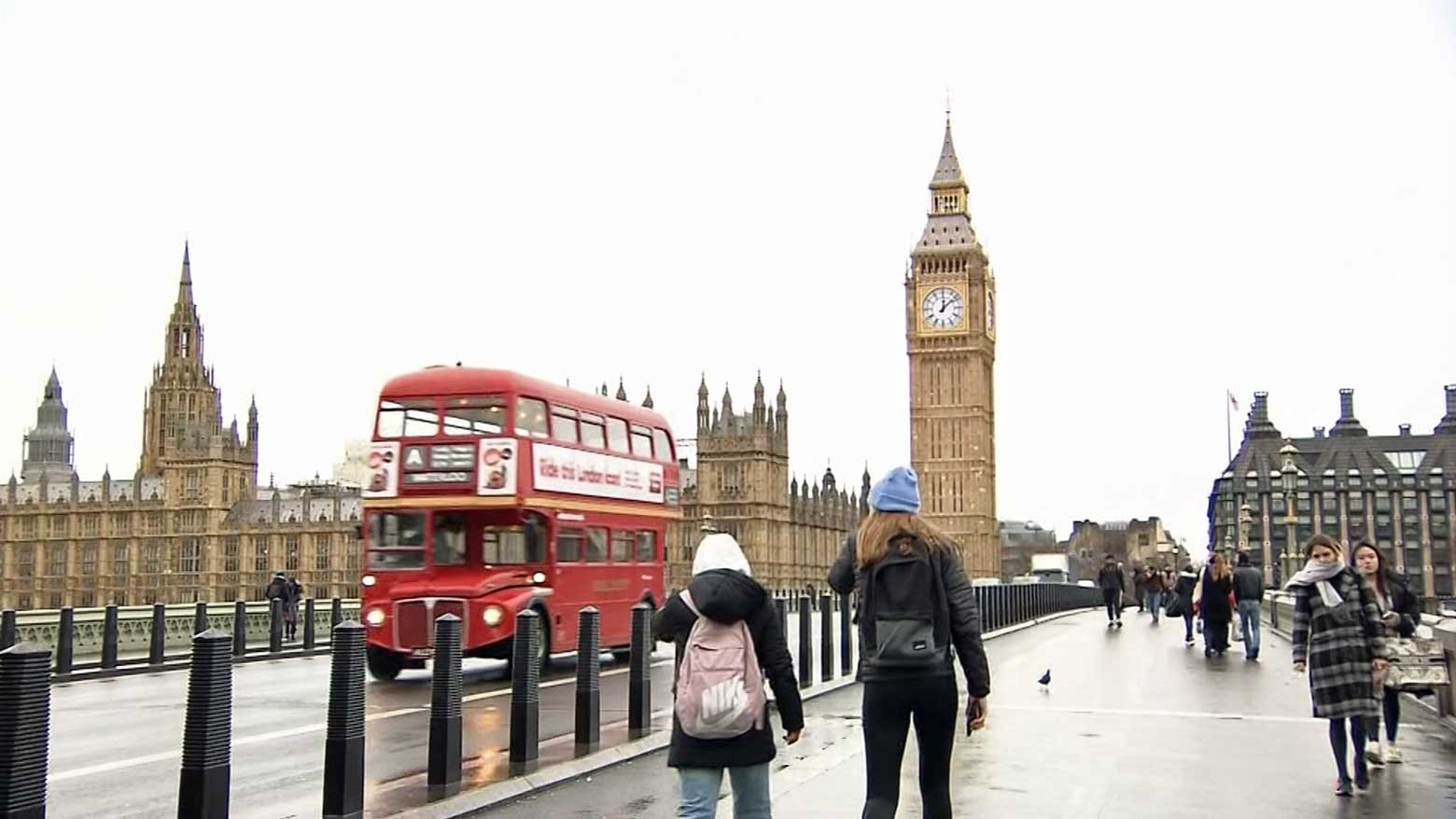A mother's story
Olha Myronenko arrived in Britain with her 13-year-old son last July. In Ukraine, she was a civil engineer and lived with her husband and two sons. She now works as a shop assistant. Olha's husband is working in Poland, and her other son is living with Olha's parents near the Ukrainian capital, Kyiv.
The 40-year-old is a beneficiary of the Homes for Ukraine scheme – where evacuees are hosted by British households for a minimum of six months. The hosts are paid 350 pounds, the equivalent of 420 dollars, each month by the government during the first year. This rises to the equivalent of 600 dollars per month the following year.
In Olha's case, she and her son were taken in by an elderly lady in London. But, after six months had passed, their host insisted they leave. Olha says she was forced to move in with friends because their local council — which administers the scheme — was unable to offer an immediate alternative.
Fortunately, another host family offered a place to stay in mid-February, but once again it is a six-month provision.
"You can't be homeless with a child. It's too scary and you don't know what to do because it's a different country and it's so strange for you. You don't know where to find any help," says Olha.
She earns a modest salary from her work but it is not enough to allow her to rent private accommodation. "To do that, you must have an annual income of around 60,000 pounds. Where can I find work for 60,000 pounds per year? It's not so easy here, when you're from another country, and my English is not fluent," Olha explains. She says many Ukrainians in Britain are struggling to find somewhere to stay when they move out of their hosted accommodation.
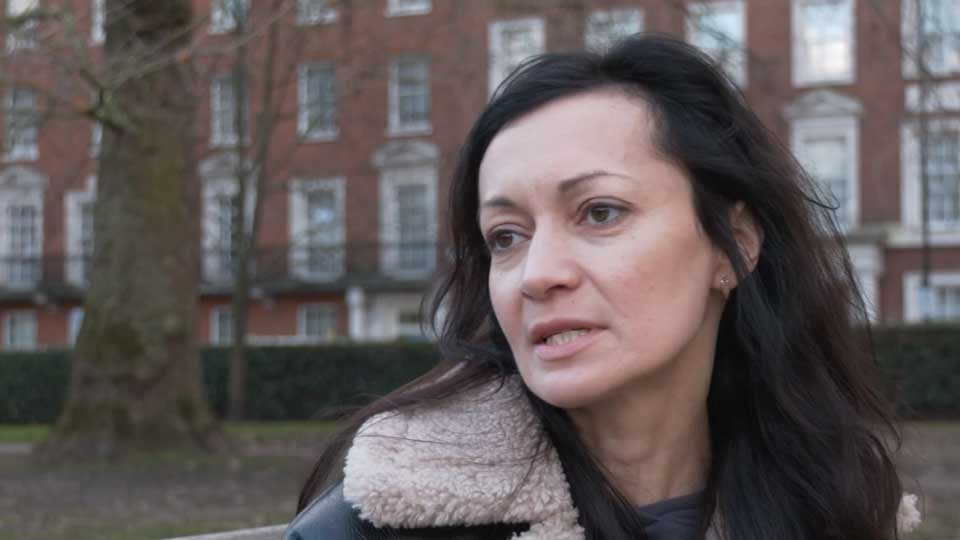
Home is a hotel
Olena Holovchenko, 43, is another Ukrainian struggling to find a permanent place to stay. Back home, she worked as a speech and language therapist and music teacher.
Olena and her 12-year-old son came to Britain in May. Like Olha, they also spent six months in their first hosted accommodation before moving out. Since November, they have been living in a hotel — a temporary solution provided by the local council. She has another son, 18, who is living with another host family.
Olena says the hotel is less than ideal. "It is inconvenient to live here because there is no kitchen, no washing machine." This means they have to make meals without an oven and use the bathroom to wash clothes.
"Many of my friends have returned to Ukraine because they weren't able to live with their host family any longer, and there is simply nowhere else," she adds.
Olena wants to stay in Britain while the war continues. "My eldest son will definitely go to college and my youngest son is in school. I want my children to be safe and they have the right to be," she says.
In the meantime, she is finding ways to continue her work. She gives speech and language therapy classes in her cramped hotel room. As for music instruction, "it is hard to find a job as a violin teacher here," says Olena. "But many Ukrainian children have come to Britain, and they need specialists like me, so there is a demand."
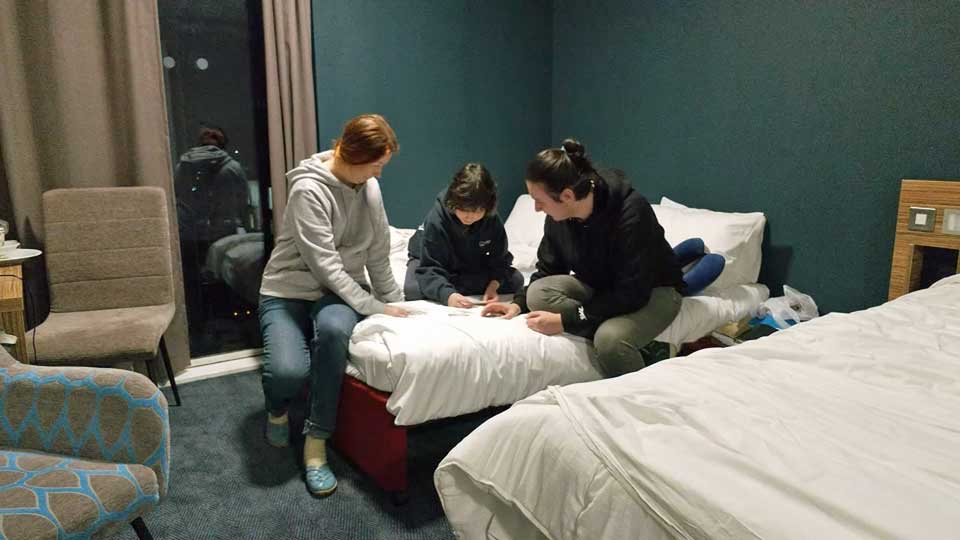
Life is a struggle
The East European Resource Centre (EERC), a charity organization, helps people from Ukraine, like Olha and Olena, who find themselves without permanent accommodation.
"Currently the majority of support that we provide is focused on housing advice because this is an issue that people encounter most," says Mariia Ustymenko, EERC welfare adviser. "I would say eighty percent of the clients who call us now have an inquiry about some aspect of housing."
Mariia says it is a struggle for Ukrainian evacuees to find well-paid employment, and their situation is often worsened by Britain's rising cost of living, language barriers, and qualification requirements.
Other difficulties include a lack of financial security paperwork. It is also a challenge to live with others for months at a time. Mariia adds that some host families can no longer afford to help due to soaring inflation.
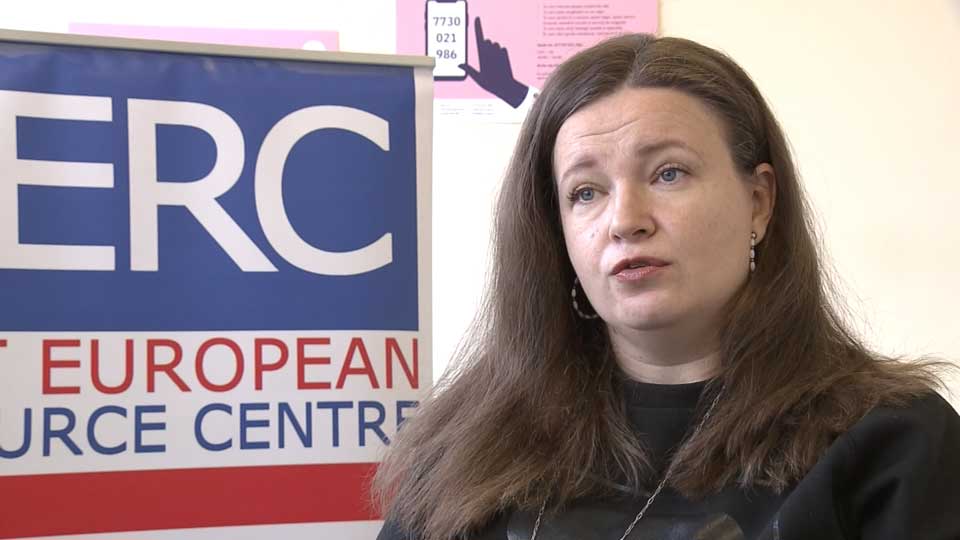
A show of compassion
Duncan Baker, a member of parliament for the governing Conservative party in Britain, hosted a Ukrainian mother and her six-year-old son for nine months.
He and his family grew close to their guests and he even arranged for a brief reunion for the woman and her husband, who remains in Ukraine, during an aid trip. The mother-and son now live near the Bakers in accommodation he helped to set up.
Baker says it is a challenging time for all: "The scheme was originally going to last six months — nobody thought that the war would go on like it has.
"We know the system is broadly working but, of course with anything like this that relies basically on compassion, it will be difficult," he continues.
The government is encouraging hosts to continue their support for Ukrainians who are living with them. Monthly payments have been increased to encourage new hosts to register.
Baker notes that additional support is also available for host families who are struggling with the cost of living.
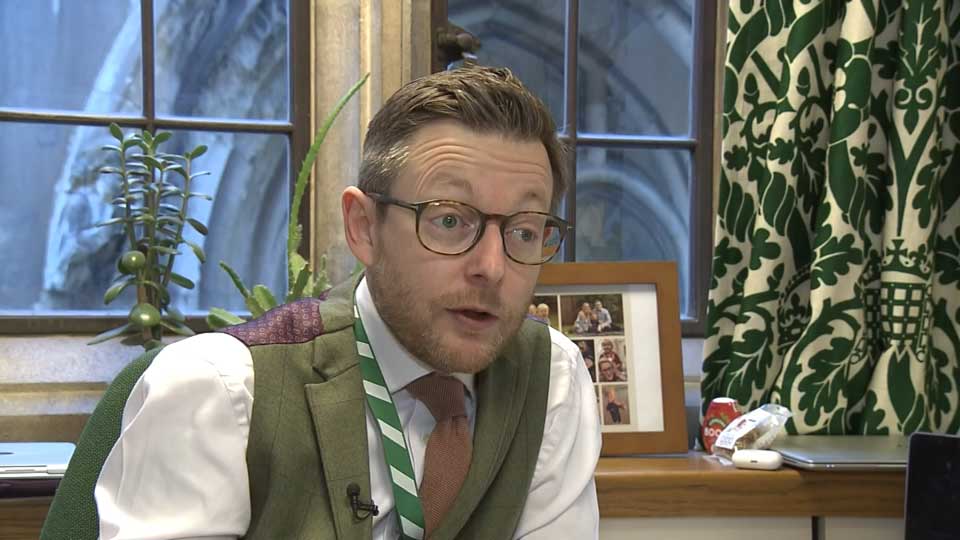
Housing insecurity
As the war in Ukraine enters its second year, the number of evacuees in Britain who are on the verge of homelessness is growing. So far, the increased monthly payments for hosts have yet to improve the situation. The number of evacuee families at risk in England, including those in temporary and emergency accommodation, has risen to 4,000 since November, up by more than 1,000.
February's data from the Scottish government shows 6,000 Ukrainian evacuees are without permanent accommodation and being housed in hotel rooms and cruise-ship cabins. In Northern Ireland, another 40 Ukrainian households are registered as homeless.
It is suspected that the overall numbers facing homelessness may be even higher than the official records show. The call for compassion will only go some of the way toward preventing a homelessness crisis for large numbers of Britain's Ukrainian evacuees, many of whom need a longer-term solution to their accommodation woes.
